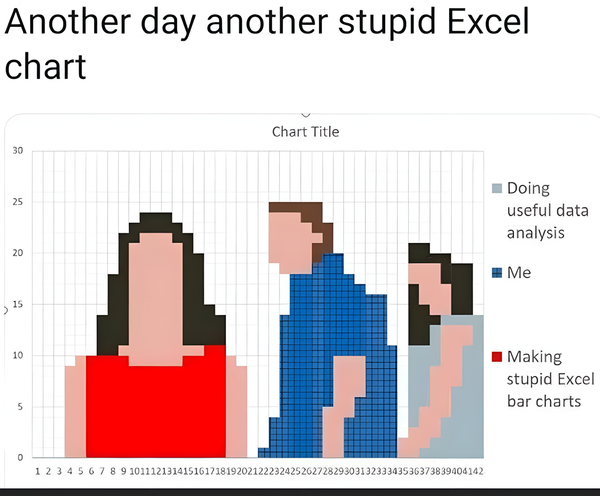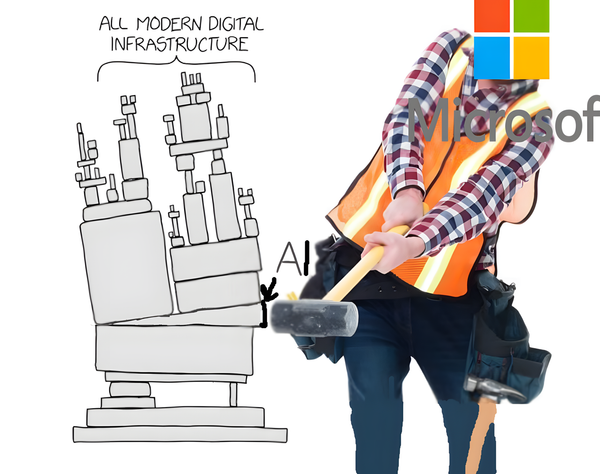The Manager's Guide – #86
Weekly Hand-Picked Collection Edition

Leadership requires taking some risk
- 🚀 Leadership roles often require taking personal risks to make professional progress
- 🎯 Bottom-up decision-making environments often distribute leadership decisions this way
- 🔍 Take risks in blank spaces without articulated strategies or for existential issues
- ⚖️ Always seek approved paths forward before taking on personal risk
- 🧠 Use engineering strategy techniques and modeling to reduce risk
- 🛠️ Prototype and validate approaches before full implementation
- 🕵️ Sometimes bottom-up leadership requires obfuscating work to address system problems
- 🌱 Taking risks is necessary for personal and career growth in leadership roles
How to talk about deadlines at work
Why it feels awkward to push back on deadlines, and how to make these conversations more approachable and effective
- 🗓️ Speaking up early about potential missed deadlines is crucial for effective communication
- 📢 Managers should explicitly encourage team members to be honest about timelines
- 🤝 Building trust between managers and direct reports is essential for open dialogue
- 💡 Providing scripts and examples helps make deadline discussions more approachable
- 🔄 Both managers and employees need to adjust their mindsets around deadline flexibility
- 🏆 Celebrating when team members speak up reinforces the desired behavior
- 🤝 Being reliable and trusted is crucial for career growth
- 🚧 Communicating blockers and ideas makes you a valuable partner
- 🎯 Delivering value to users and meeting business goals is important
An Evolutionary Approach to Staffing Software Product Teams
Many companies hastily put together large teams, which leads to risks and inefficiency.
- 🚀 Start with a minimal team of 1-3 strong engineers and a domain expert to lay foundations
- 🌱 Expand cautiously with 1-2 additional developers who fit the team culture
- 🧩 Scale through specialized feature teams if necessary, focusing on specific product areas
- ⚖️ Evolutionary approach balances flexibility, quality, and sustainable growth
- 🔄 Gradual team expansion based on product progress and needs yields better results
The Basics
Here’s what I consider to be the basics. I call them that not because they’re easy, but because they’re fundamental. The foundation on which your advanced skills and expertise rest. Multipliers and nullifiers, makers and breakers of everything you do.
They don’t usually show up in technical books and yet without them a lot of brilliant effort can go to waste. I constantly have to remind myself of them, sitting on my own shoulder and wagging a finger in my face.
- 🧪 Test manually, even after automated tests, and record yourself doing it
- 🤔 Think through edge cases before implementation
- 🧹 Keep changes focused and free of unrelated modifications
- 📚 Do homework before meetings to stand out
- 🎯 Understand the problem you're solving and why
- 📝 Write clear, detailed bug reports with steps to reproduce
- 📖 Read error messages, documentation, and instructions thoroughly
- ⏰ Be punctual and respect others' time
- 🤝 Aim to be someone people want to work with
11 ways to get better feedback from your manager
Hard truths about why your manager isn’t giving you more feedback--and what to do about it.
- 📊 Make it effortless for your manager to provide feedback by being specific and removing friction
- 💬 Ask for input on what to do differently rather than using the loaded term “feedback”
- ✂️ Give your manager permission to be direct and “rip apart” your work to get honest critique
- 🧠 Recognize that detailed work edits and explanations are a form of coaching/mentoring
- 📄 Provide concrete work samples for your manager to react to instead of vague questions
- 🎯 Be explicit about what type of feedback you're looking for (high-level, specific sections, etc.)
- 😊 React positively when receiving feedback to encourage more in the future
- 💼 Frame how feedback will benefit the business to incentivize your manager to provide it
- 🔍 Specify exactly what part you need help with rather than forwarding long email threads
Friction isn't velocity.
- 🚗 Rolling down car windows creates an illusion of faster speed but actually increases air resistance and slows the car down.
- 🧠 Stressed executives often make the mistake of substituting motion for progress when unsure how to move forward.
- 🏗️ Migrating from monolith to microservices without clear architecture can waste time without solving underlying issues.
- 📅 Implementing new development processes like Scrum may create an appearance of progress without addressing root problems.
- 📚 Changing knowledge base tools often doesn't improve underlying knowledge management issues, which are related to incentives and culture.
- 🎭 Leaders focused on the performance act of leadership rather than impact may not be receptive to feedback about ineffective tactics.
That’s all for this week’s edition
I hope you liked it, and you’ve learned something — if you did, don’t forget to give a thumbs-up and share this issue with your friends and network.
See y’all next week 👋



